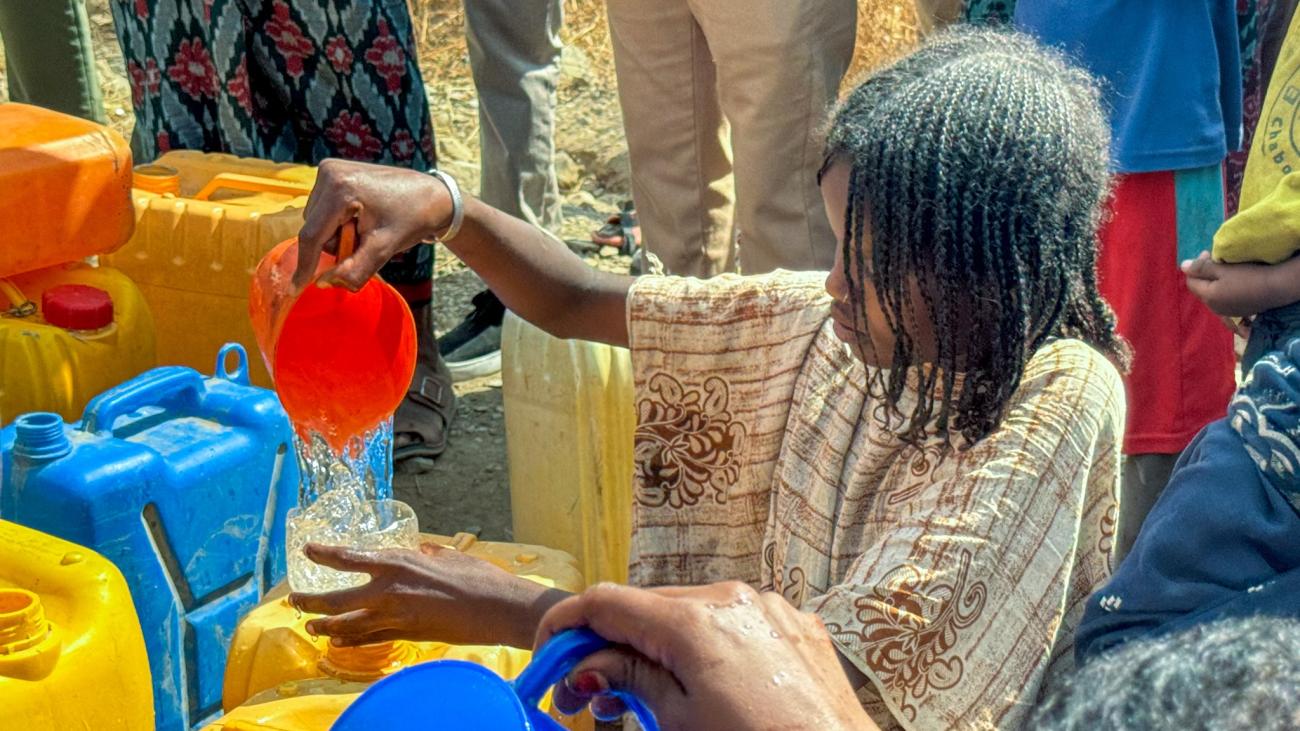Access to safe water is transforming post-conflict communities

In Da Rara Kebele, Abala City Administration, Afar region, water is more than just a necessity—it’s a lifeline for resilience, hope, and rebuilding.
Home to approximately 6,000 households, this community faced formidable challenges, even before the 2020-2022 conflict tore through northern Ethiopia. For women and children, the struggle to access water was a daily hardship that exposed them to physical exhaustion, dangerous terrain, and the threat of violence.
The Daily Struggle for Water
Fetching water in Da Rara once meant gruelling journeys that could last hours. Halima Osman, a 20-year-old resident, recalls how exhausting and unsafe it was. "We had to fetch water from neighbouring villages, sometimes walking for three to four hours. The water was not clean, but we had no choice but to drink it," she shared.
For Fatuma Akader Ibrahim, a mother of eight, the situation was just as dire. “We travelled up to five hours to fetch water from streams, and the journey was dangerous. Women carried heavy containers and often got injured,” she recounted. Beyond the physical toll, children missed school, and families spent scarce resources on unsafe water or costly transportation to bring it home.
Conflict and Displacement
The conflict that erupted in November 2020 only deepened these hardships. Families like Halima’s and Fatuma’s were forced to flee, enduring perilous journeys to displacement camps in Afdera, Semera, and beyond. When they returned, they found their homes and livelihoods in ruins.
Despite the devastation, there was one glimmer of hope—the water pipeline project initiated by the Afar regional government before the conflict remained intact, though unfinished.
A New Chapter: Clean Water Transforms Lives a Community Reborn
In 2024, that hope turned into reality. The rehabilitation of the waterline in Salhou village, supported by the UNDP Peace Support Facility (PSF) and funded by Germany and Japan, changed everything.
Halima, now back in school, is determined to chase her dream of becoming a doctor. “Before, fetching water took up most of my day. Now, with clean water available twice a week, I have time to focus on my education,” she said with relief.
For Fatuma, the impact has been just as profound. “My children can finally attend school without worrying about water. We’re not struggling anymore, and life feels better,” she shared, her gratitude shining through.
A Community Reborn
The transformation in Da Rara is undeniable. According to Mohamed Hassan, a community leader, the waterline now serves thousands of households and children. “This project has been a game changer for us,” he said.
However, the increased demand from neighbouring villages has placed pressure on the system. “We need more infrastructure, like a second water point, to ensure everyone has access,” Mohamed explained.
Hope for a Sustainable Future
The waterline is just the beginning. Residents like Fatuma and Halima ask for further support—additional water points, storage tanks, and continued investment in sustainable solutions.
The UNDP-managed multi-partner Peace Support Facility is helping Ethiopia bridge immediate humanitarian relief with long-term development, aligning with the Humanitarian-Development-Peace (HDP) nexus principles.
The intervention has helped local authorities rehabilitate 93 water schemes across the Afar, Amhara, and Tigray regions, providing clean water to over 38,000 people.
With continued collaboration between local governments, international partners, and communities, Da Rara’s story can inspire broader efforts to ensure clean water for all. Water isn’t just a resource—it’s the foundation for big dreams and brighter futures




